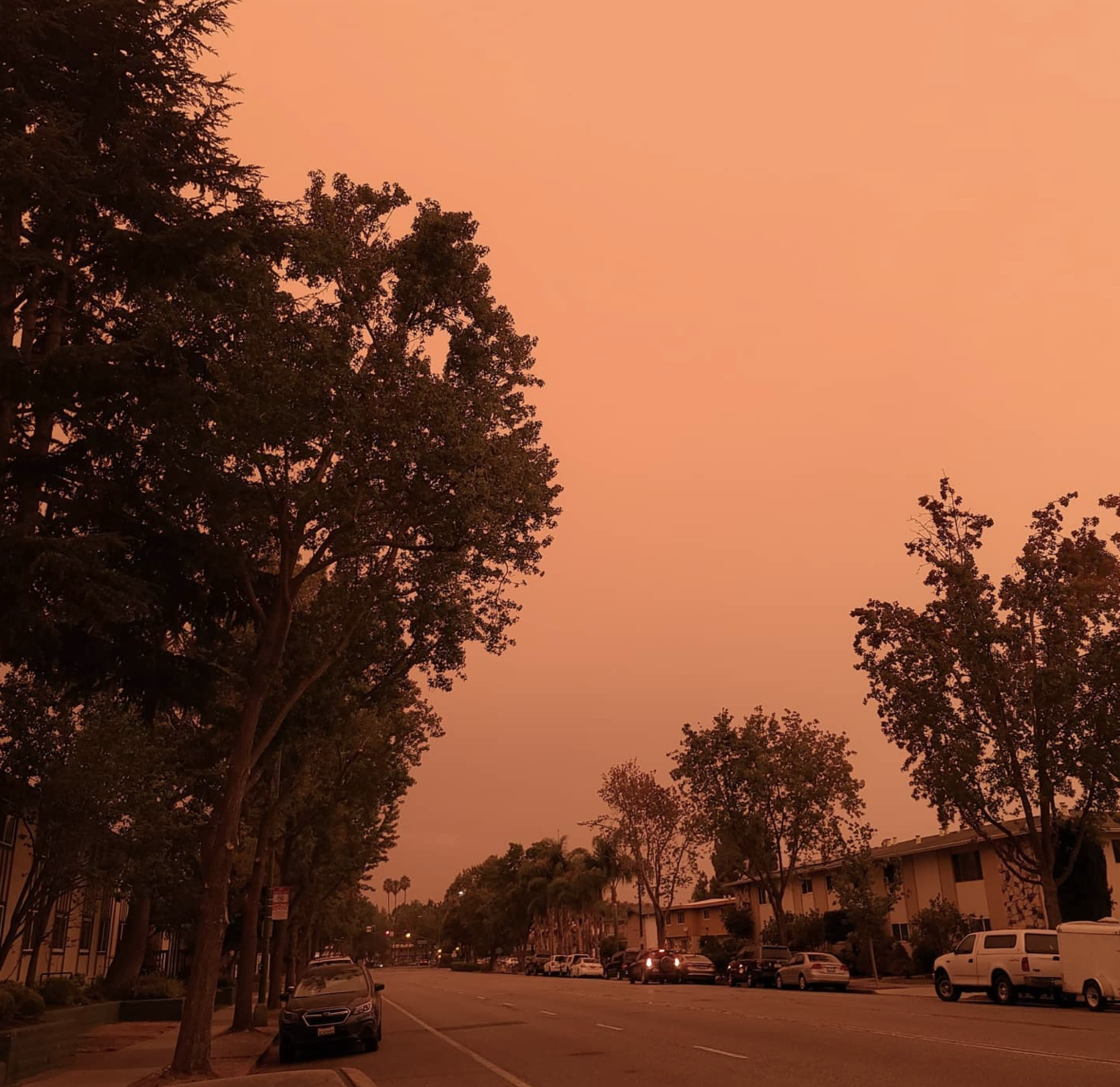Intentions: Good & Fragile
The question isn't "who can or should write which identities," it's what is required to do so?

On a good day, my brain likes to dabble in multiple worlds. The majority of my professional life has been anchored in the world of news and information. Outside of that, I am a photographer, an artist, a maker, and work on a variety of technology projects. I'm also, and this is the first time I've ever put this in writing publicly, working my way toward being a book author with a couple works in progress. Do I have any idea when I'll publish? Nope. But it's somewhere, hopefully, on a nearby horizon. What's does this have to do with anything? All of these particular paths inevitably intersect with what it means to reflect and respect a broad spectrum of lived experiences.

This is a longer piece than just a online comment however, it's become a necessity of online discourse to remind readers that a person's perspective is exactly that, their perspective.
I come to my work with the identity of a straight, white cis woman. I've no experience of racial or ethnic discrimination or marginalization. I'm pretty sure my distant ancestry is German and Italian but I've been disconnected from biological family most of my life so ¯\_(ツ)_/¯. The exposure to marginalization and systemic harm that I do have comes from my experiences for the first half of my life in deep, deep rural poverty in volatile circumstances, having an incarcerated parent and the basic edition of misogyny excluding the extended features with which women of color have to contend. So, I am missing the nuances and perspective of a person who has direct experience with racial and ethnic discrimination in this essay. I'm sharing my observations as a person who's been in and around the world of storytelling and the inherent privileges and powers that are involved in such acts.
In journalism, I have had a winding career path spending much of my time as a freelancer and consultant rather than a staffer. Not being dependent on one employer has given me is a freedom to say things without worrying about being fired from my only job. So I talk, often bluntly, about class and poverty within the field of journalism, within the dynamics between journalists and people in communities and journalism ethics and practices broadly.
Now that I'm going beyond essay writing and into books, I have been applying what I have learned from my specific journalism work to understanding the book world: Show up. Shut up. Listen.
What I learned in the world of journalism, which interacts with vulnerable populations every single day, is that showing up and just listening is the bare minimum owed to participating in a space where actions have consequences. So I've been lurking in bookish spaces for the past couple of years. Tuning into the conversations on social media. Following along with commentary as much as I can.
It's not shocking that the pervasive issues of our society are just as rife, if not even more amplified, within the book world as they are in the journalism world. The journalistic and fictional representations of life are two sides of the same coin. What's fascinating is the different flavors of the same defensive postures from those with the power and/or privilege in any given dynamic. It is not hard to see who is doing work for and with a community and who is doing work that is simply about a community.
Most recently, I've been witnessing the ebb and flow of white authors seeking specific guidance on if, when and how to write BIPOC characters in such a way that they'll be able to avoid any and all criticism. However, the underlying unspoken request, often laced with the expression of fears, sounds a lot like "tell me what to do so I'll be safe..."
...from scrutiny?
...from criticism?
...from accountability?
There is no such safety when putting work out in the public, especially creative work.
And most importantly, safe from whom?
Broadcasting requests for impossible unanimously agreed upon instructions via social media while sharing fears of being accused of something that wasn't intended...
It’s yet another way to not only make BIPOC people responsible for white people's mistakes but also responsible for the consequences white authors may experience for their mistakes.
The request itself positions potential (BIPOC) critics as the aggressors whom the white authors need safety from.
Effectively "If you don't specifically tell *me* how to do this in a way that won't cause what you claim is harm, it's not my fault if I do." (It's giving very similar energy to men who evade responsibility for inaction or mistakes because they aren't given a list specifically telling them what, how and when to do something.)
What's impossible here is asking for consensus on how to do something when consensus is simply not possible. The folks experiencing harm are not a monolith who feel one way. There is no criticism-proof option.
I've seen this same dynamic play out repeatedly in newsrooms. "Tell us how to interact with <identity of person>, so they'll talk to us" or "how can we appeal more to <identity>?"
Good intentions aren't enough
Recently, I was interviewed for a piece about how journalists can, with care and a mind toward minimizing harm, engage with people who are experiencing economic hardship. I said, and I believe this strongly, when it comes to interacting with someone experiencing hardship; if it's simply to check a box, on deadline and in a hurry...don't. Don't do it. Not unless it's part of a larger sincere effort to do so with an ongoing practice of care. Someone's hardship is not color for a story, whether that story is journalistic or fiction.

There was something I said to the writer of the piece linked above in our email exchange that wasn't published in its entirety, understandably, because it's long. But I want to share it here because I think the broader theme applies beyond journalism.
People aren't just "the poor". They are everything else too. Poverty isn't an aspect of a person's experience that can be neatly separated from any other concern any voter would have. They're all races, all ethnicities, all genders, all orientations, all parental statuses, all caregiving statuses, all educational levels.
The mistake I see most often is journalists approach them as if their only perspective is poverty and none of the other many facets of their lives and their identities. Middle and upper class voters get treated as having more complex and multifaceted existences and more inherent potential. They are asked about all kinds of things, not just policy but also big picture things about democracy, rights, global standing, what society should be. People experiencing economic hardship get asked about their hardship. The difference between people experiencing hardship and people not experiencing hardship is not the scope of their existence or their potential, it's the influence their socioeconomic status has on how they navigate their specific circumstances and act on that potential.
When it comes to fiction, and specifically white authors depicting BIPOC characters, if those characters are being constructed merely as avatars for racial or ethnic stereotypes or exist only represent their marginalization and not a whole person who lives beyond just that grave inheritance, then the depiction is not only superficial and incomplete, it also perpetuating the harm of stereotypes and marginalization.
There are many hopping into the online conversation across platforms, ostensibly, earnestly asking “well, can I write a BIPOC character at all? I thought representation matters!” No one is saying you can’t. Write that character. But what I hear and see from BIPOC people in these exchanges is that you should avoid writing generational trauma, or a lived experience of harm that you cannot truly understand. Those stories have implications and ramifications that require careful handling.
Absolutely include a diverse array of races, ethnicities and heritages amongst your characters. But do not purport to reflect their experiences with harm that come from their race, ethnicity or heritage if you don’t truly know what that’s like or understand how it actually manifests in their life. And especially do not do so if you cannot represent them as human beings beyond marginalization.
What someone experiences is not who they are. It shapes who they are, but it is not their entire identity. If a character’s sole existence is for the purpose of adding depth and gravitas because of the harm and trauma they experience due to their race or ethnicity, then the character is not a person, they are a literary mannequin that exists only to wear a uniform of oppression. It’s a method of performing the acknowledgement of harm while not actually doing the work of reckoning with it.
Fragile intentions are revealed by a lack of effort
It's not necessarily a binary choice, but I see some authors proceeding as if they can either:
1) Request labor delivered directly to them via social media. The efficacy of this approach is likely quite low because, odds are, if they had already cultivated a community and feed of people with diverse experiences that could possibly answer their question, they'd have already been exposed to enough thinking to not have to ask broad impossible questions.
Or
2) Invest time exploring and experiencing any of the decades of scholarship, published materials, talks, essays, existing commentary, etc from BIPOC folks to inform a working approach that minimizes the likelihood of harm. The effort will be evident in the way one engages after putting in the work.
It's not hard to guess which one will more likely result in effective learning.
What's brilliant about the world of book writing compared to journalism, is that there are far more tools at an author's disposal to refine what they are doing. Developmental editors. Sensitivity readers. Beta readers. Writing workshops. Writing groups. The deadlines are far more permissive for an author to ensure their understanding and depiction of a character is both thoughtful and reflective of reality. The world of journalism still lags behind in the notion of having a diverse slate of people involved in the development and execution of reporting and storytelling.
Intentions come with obligations
There is no requirement to write an experience of which an author is uncertain in their understanding or capacity to do so without causing harm. The only experience one can be absolutely certain of is one's own. These two concurrent realities require approaching the effort with humility and a readiness to receive and honor feedback.
I don't see anyone seeking the prohibition of authors writing any identity other than their own. (Such a thing can actually be dangerous for those with identities that might expose them to harm should it be known.) We all benefit from more diverse representation in stories. We just also need to be comfortable with the reality that the accurate reflection of diverse identities is, due to the nature of humanity, ongoing work with no finish line.
So the question is less "who can or should write which identities," it's what is required to do so? The answer is, at minimum, effort and accountability.
For & With > About
For and with more than about is a phrase I’ve used repeatedly in my journalism work. The purpose is to re-center whom the work should benefit and how to go about doing it.
Journalism done for and with a community will always be more effective and more inclusive than journalism simply about a community. I think the same is true in fiction writing.
When we are writing for someone, not just about someone, we have to put effort into understanding and accounting for the consequences of what we write. We have to think about the impact.
No one, not a journalist or author, is entitled to the use of other people’s trauma as means to deepen a story.
To write fiction for and with people more than just about people means taking care through the development and writing of the story to understand the decisions we make as the author. Why is a character this race or this ethnicity or this identity? Why does the reader need to see them experience this kind of interaction? Why will this character behave in this way? Why is the character motivated by this event? Interrogate the intentions behind each choice.
It means working with people through the opportunities available to an author to get feedback and input on how the work actually comes across to someone not experiencing the work without knowing all the intentions and reasons that may not be evident on the page.
Responsibility over Intention
The person in the position of power, privilege and risk of inflicting harm is the one responsible for expending effort before asking it of others. The labor of writing is not just putting words to page, it's also the research, the learning and the immersion in context that's necessary to do it right.
Likewise, genuine accountability, not deflection and defensiveness, is the only way to grow. We cannot shrug off responsibility if we cause harm. Even if it was unintentional. Even if we learn from it and will do better in the future. Good intentions are not absolution for actual harmful impact. No one is entitled to consequence-free acts of harm for the sake of their own personal growth and learning.
Writing is not a comfortable endeavor. There is no safety from scrutiny, critique or accountability. The only writing that offers such assurance is called a journal.
In writing about people, there must be empathy. In writing for people, there must be understanding. In writing with people, there must be vulnerability. In writing with meaning, there must first be listening.
Special thanks to Marlene Hirose and J. Jason Lazarus for edits and feedback.





